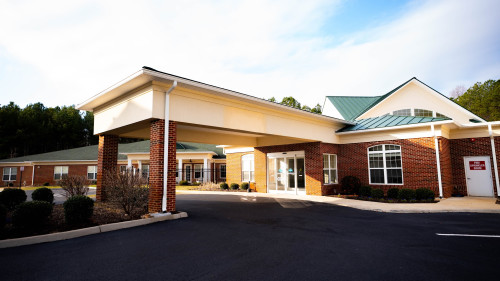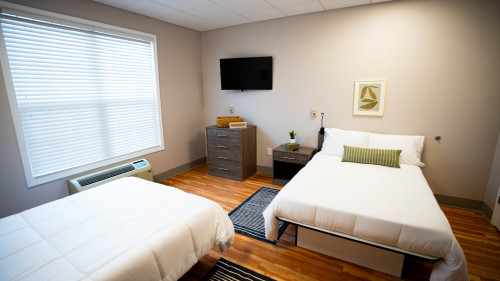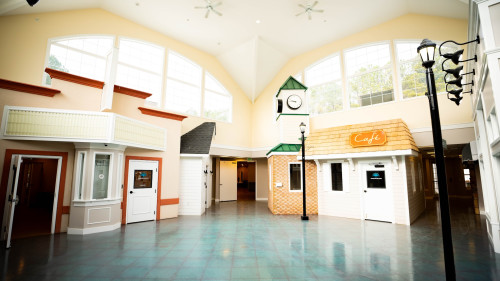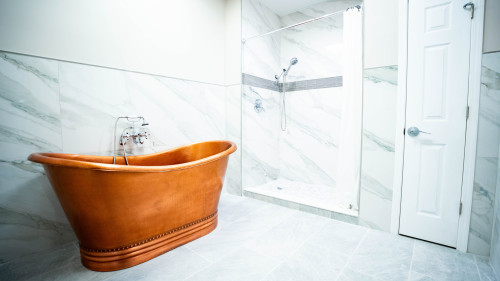






Arrowwood Addiction Treatment Center
Treatment Focus
This center treats primary substance use disorders and co-occurring mental health conditions. Your treatment plan addresses each condition at once with personalized, compassionate care for comprehensive healing.
Primary Level of Care
Offering intensive care with 24/7 monitoring, residential treatment is typically 30 days and can cover multiple levels of care. Length can range from 14 to 90 days typically.
This provider hasn't verified their profile's information. Are you the owner of this center? Claim your listing to better manage your presence on Recovery.com.
Treatment Focus
This center treats primary substance use disorders and co-occurring mental health conditions. Your treatment plan addresses each condition at once with personalized, compassionate care for comprehensive healing.
Primary Level of Care
Offering intensive care with 24/7 monitoring, residential treatment is typically 30 days and can cover multiple levels of care. Length can range from 14 to 90 days typically.
Provider's Policy
We work with most major insurance providers.
Arrowwood Addiction Treatment Center
Arrowwood Addiction Treatment Center
About Arrowwood Addiction Treatment Center
Nestled in the woods outside Richmond, Arrowwood Addiction Treatment Center treats adults 18+ with substance use disorders, including alcohol, prescription drugs, and opioids. Their primary offerings are medical detox and residential treatment, but they also offer multiple levels of outpatient care as additional step-down options that clients can take to transition into long-term recovery. Additionally, Arrowwood can help clients find sober living.
Arrowwood has Joint Commission accreditation for ASAM care levels 3.5 and 3.7.
Safe Detox Planning
Arrowwood's team uses separate protocols to help clients safely taper off opioids than they do for alcohol. They know that detoxing from both drugs can be dangerous and have experience watching for mental health and physical health symptoms.
Care to Rewrite Client's Narratives
Arrowwood offers clients a mix of individual and group therapies, including the time-tested cognitive behavioral therapy (CBT). Clients learn how to understand their feelings and build healthy habits. In addition to evidence-based therapies, Arrowwood performs massage therapy and monitors clients' physical health.
Treating Addiction as a Family Disease
Arrowwood also has family therapy for no additional charge for people who the client identifies as part of their support network. They consider addiction a family disease since it also harms the people around the individual with addiction. Their family therapy opens up space for family and friends to process their feelings, learn about the science of addiction, discuss how to rebuild trust with the client, and identify ways to provide healthy support for the client's long-term success.
Multidisciplinary Staff Passionate about Recovery
Arrowwood's care team includes nurses, therapists, culinary staff, case managers, and an operations team. The nurses are on-site 24/7 and able to provide medications for any symptoms. The case managers help clients navigate their insurance, legal, financial, and professional challenges so that clients can complete therapy with peace of mind and still have a job when they complete treatment.
The majority of the staff is in long-term recovery, but Arrowwood also makes sure to hire staff who are friends or family members of people in recovery so that their perspective can help inform treatment.
Healing in Comfort
To ensure the recovery environment is both comfortable and effective, Arrowwood's facility includes shared rooms with full-size beds, bathrooms with copper tubs, a 24/7 cafeteria, a sauna, a ping-pong table, a pool table, shared indoor and outdoor spaces, and a room for massage therapy. Part of the campus is laid out as a mock town, simulating life in long-term recovery with a fun and easy-to-navigate design.
Arrowwood makes the distinction that their facility is "residential" rather than "inpatient" because of the amenities and because clients can stay as long as they need.
Rural Care out of Richmond
The address for Arrowwood is officially in the town of Hopewell, but some sources list the address in Prince George, the town next to it. Either address refers to the same facility, which is surrounded by tall trees and 35 minutes from downtown Richmond.

Center Overview
Treatment Focus
This center primarily treats substance use disorders, helping you stabilize, create relapse-prevention plans, and connect to compassionate support.
Joint Commission Accredited
The Joint Commission accreditation is a voluntary, objective process that evaluates and accredits healthcare organizations (like treatment centers) based on performance standards designed to improve quality and safety for patients. To be accredited means the treatment center has been found to meet the Commission's standards for quality and safety in patient care.

Insurance Accepted
Cash Pay Rates
Estimated Cash Pay Rate
Center pricing can vary based on program and length of stay. Contact the center for more information. Recovery.com strives for price transparency so you can make an informed decision.
Levels of Care








Treatment
Specializations
Drug Addiction
Drug addiction is the excessive and repetitive use of substances, despite harmful consequences to a person's life, health, and relationships.
Opioids
Opioids produce pain-relief and euphoria, which can lead to addiction. This class of drugs includes prescribed medication and the illegal drug heroin.
Alcohol
Using alcohol as a coping mechanism, or drinking excessively throughout the week, signals an alcohol use disorder.
Who We Treat
Men and Women
Men and women attend treatment for addiction in a co-ed setting, going to therapy groups together to share experiences, struggles, and successes.
LGBTQ+
Addiction and mental illnesses in the LGBTQ+ community must be treated with an affirming, safe, and relevant approach, which many centers provide.
Professionals
Busy, high-ranking professionals get the personalized treatment they need with greater accommodations for work, privacy, and outside communication.
Approaches
Medical
Medical addiction treatment uses approved medications to manage withdrawals and cravings, and to treat contributing mental health conditions.
Evidence-Based
A combination of scientifically rooted therapies and treatments make up evidence-based care, defined by their measured and proven results.
Individual Treatment
Individual care meets the needs of each patient, using personalized treatment to provide them the most relevant care and greatest chance of success.
Therapies
1-on-1 Counseling
Patient and therapist meet 1-on-1 to work through difficult emotions and behavioral challenges in a personal, private setting.
Family Therapy
Family therapy addresses group dynamics within a family system, with a focus on improving communication and interrupting unhealthy relationship patterns.
Psychoeducation
This method combines treatment with education, teaching patients about different paths toward recovery. This empowers them to make more effective decisions.
Massage Therapy
Massage therapy relieves physical and emotional tension, reduces pain, promotes relaxation, and improves emotion regulation.
Substances We Treat
Cocaine
Cocaine is a stimulant with euphoric effects. Agitation, muscle ticks, psychosis, and heart issues are common symptoms of cocaine abuse.
Benzodiazepines
Benzodiazepines are prescribed to treat anxiety and sleep issues. They are highly habit forming, and their abuse can cause mood changes and poor judgement.
Co-Occurring Disorders
A person with multiple mental health diagnoses, such as addiction and depression, has co-occurring disorders also called dual diagnosis.
Drug Addiction
Drug addiction is the excessive and repetitive use of substances, despite harmful consequences to a person's life, health, and relationships.
Methamphetamine
Methamphetamine, or meth, increases energy, agitation, and paranoia. Long-term use can result in severe physical and mental health issues.
Opioids
Opioids produce pain-relief and euphoria, which can lead to addiction. This class of drugs includes prescribed medication and the illegal drug heroin.
Alcohol
Using alcohol as a coping mechanism, or drinking excessively throughout the week, signals an alcohol use disorder.
Languages
Aftercare
Experience
Personal Amenities
Amenities
Special Considerations
Healthy Meals are provided
Great food meets great treatment, with providers serving healthy meals to restore nutrition, wellbeing, and health.
Activities
Off-Site Activities

We love hearing about your treatment experience
Help individuals and families seeking treatment by sharing your first-hand experience with this treatment provider. Review Guidelines.





